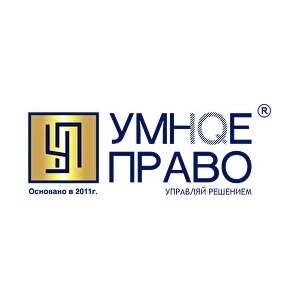Best Debt Capital Markets Lawyers in Russia
Share your needs with us, get contacted by law firms.
Free. Takes 2 min.
Or refine your search by selecting a city:
List of the best lawyers in Russia
About Debt Capital Markets Law in Russia
Debt Capital Markets (DCM) in Russia involve the issuance, trading, and regulation of debt securities such as bonds. These markets allow corporations, financial institutions, and the government to raise capital by issuing debt instruments to investors. The development of Russia's debt markets has accelerated over the past two decades, making it an important segment of the Russian financial system. The legal framework supporting DCM is largely influenced by national legislation, Central Bank of Russia regulations, and, in certain instances, international best practices.
Why You May Need a Lawyer
Given the complexity and regulatory requirements of Debt Capital Markets in Russia, legal advice is crucial in a variety of situations, such as:
- Structuring and launching bond or other debt security issuances
- Navigating registration and disclosure requirements with local authorities
- Adhering to Russian securities laws and Central Bank regulations
- Conducting due diligence during acquisition or restructuring of debt instruments
- Dealing with cross-border transactions or dual listings
- Managing defaults, restructurings, or enforcement actions related to debt securities
- Resolving disputes arising from market activity
A specialized lawyer can help ensure compliance, reduce risks, protect your rights, and facilitate successful transactions in these complex financial markets.
Local Laws Overview
The Russian Debt Capital Markets are heavily regulated. Key legal aspects include:
- Securities Market Law: The foundation is the Federal Law on the Securities Market, which sets out rules on the issuance, placement, circulation, and registration of debt securities.
- Central Bank of Russia Regulations: The Central Bank acts as the main regulator, issuing additional guidelines and maintaining the registries for security issuers and offerings.
- Issuance and Disclosure: Debt securities must be registered with the Central Bank, and issuers are subject to strict requirements on disclosure of financial and operational information.
- Market Participants: Laws govern the activities of issuers, underwriters, investors, depositories, and other professional participants.
- Foreign Participation: While foreign investors can participate, there may be restrictions and additional compliance obligations, especially regarding currency controls and reporting.
- Listing Rules: Publicly offered debt instruments must comply with stock exchange requirements in addition to general regulations.
Compliance with these laws is essential, as violations can lead to administrative penalties, suspension of securities, and other legal consequences.
Frequently Asked Questions
What is a debt security?
A debt security is a financial instrument, such as a bond or note, that represents a loan made by an investor to an issuer. In return, the issuer agrees to pay back the principal with interest by a specified date.
Who regulates Debt Capital Markets in Russia?
The Central Bank of Russia is the primary regulator for Debt Capital Markets, overseeing the issuance, trading, and operations of market participants.
Can foreign companies issue bonds in Russia?
Yes, foreign companies can issue bonds in Russia, but they must meet certain regulatory requirements, including registration and compliance with currency regulation rules.
What is required to issue a corporate bond?
Issuers must prepare comprehensive documentation, register the debt securities with the Central Bank of Russia, make public disclosures, and often obtain a credit rating.
What are the key risks in the Russian Debt Capital Markets?
Risks include regulatory changes, currency fluctuations, political factors, issuer creditworthiness, and market liquidity issues.
Are there restrictions on who can purchase debt securities?
Some offerings may be limited to qualified investors or institutional buyers, depending on the type of security and terms of the issuance.
How are defaults on Russian bonds handled?
Defaults are governed by the bond documentation and Russian law. Investors may seek remedies through courts or agree to restructuring terms with the issuer.
Do Russian bonds need to be listed on a stock exchange?
Not all bonds must be listed, but public offerings generally require listing on a recognized Russian exchange, which comes with additional requirements.
What disclosures are required from bond issuers?
Issuers must regularly disclose financial statements, significant events, and other material changes to the market, as regulated by law and stock exchange rules.
Can investors from abroad freely repatriate returns?
Returns may be repatriated, but foreign investors must comply with Russian currency control laws and tax regulations.
Additional Resources
For further information or official guidance, consider consulting:
- Central Bank of Russia (Bank of Russia) - regulatory authority
- Moscow Exchange (MOEX) - primary trading platform for debt securities
- National Settlement Depository - clearing and settlement services
- Federal Financial Monitoring Service (Rosfinmonitoring) - anti-money laundering oversight
- Professional associations such as the National Association of Stock Market Participants (NAUFOR)
These organizations provide regulations, educational resources, and sometimes guidance for market participants.
Next Steps
If you are considering entering the Debt Capital Markets in Russia or have questions about an existing involvement, your first step should be to consult with a qualified legal professional experienced in Russian securities law.
- Gather all relevant information about your objectives or the specific issue at hand.
- Identify lawyers or law firms specializing in finance, securities, or Debt Capital Markets.
- Prepare a list of questions or concerns to discuss during your consultation.
- Verify the credentials and track record of any legal advisor.
- Discuss potential costs and timelines before engaging services.
Professional legal advice is essential for compliance, understanding your risks, and ensuring the best possible outcome in Russian Debt Capital Markets.
Lawzana helps you find the best lawyers and law firms in Russia through a curated and pre-screened list of qualified legal professionals. Our platform offers rankings and detailed profiles of attorneys and law firms, allowing you to compare based on practice areas, including Debt Capital Markets, experience, and client feedback.
Each profile includes a description of the firm's areas of practice, client reviews, team members and partners, year of establishment, spoken languages, office locations, contact information, social media presence, and any published articles or resources. Most firms on our platform speak English and are experienced in both local and international legal matters.
Get a quote from top-rated law firms in Russia — quickly, securely, and without unnecessary hassle.
Disclaimer:
The information provided on this page is for general informational purposes only and does not constitute legal advice. While we strive to ensure the accuracy and relevance of the content, legal information may change over time, and interpretations of the law can vary. You should always consult with a qualified legal professional for advice specific to your situation.
We disclaim all liability for actions taken or not taken based on the content of this page. If you believe any information is incorrect or outdated, please contact us, and we will review and update it where appropriate.
Browse debt capital markets law firms by city in Russia
Refine your search by selecting a city.
















